Most nighttime routines have clear benefits. Brushing your teeth prevents plaque buildup from forming overnight, wrapping your hair can prevent breakage from tossing and turning in your sleep, and removing makeup prevents clogged pores and acne. However, the pros and cons are a little less obvious when it comes to applying deodorant or antiperspirant before bed. (More on the differences between the two later.)
Debates on social media have users adamantly laying out their pro- and anti-nighttime deo stances. Some claim that opting out of applying an odor-reducer (such as deodorant or antiperspirant) before bed gives the skin a much-needed break. But the pro-deo camp swears that using the product before bed increases its efficacy. We consulted the experts to find out the truth.
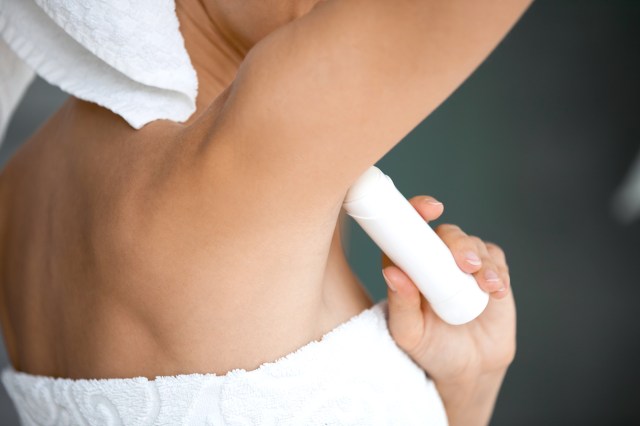
The Difference Between Deodorant and Antiperspirant
First, let’s clarify the differences between antiperspirant and deodorant. Deodorants help mask body odor in two ways: with antimicrobial properties that reduce odor-causing bacteria, and with fragrance that simply covers the odor with something more pleasant-smelling.
Antiperspirants, on the other hand, effectively stop odor at the source by blocking the body’s sweat-producing eccrine glands. Antiperspirants prevent both sweat and the odor sweat causes. Once the antiperspirant is either washed or sweated off, the eccrine glands’ ability to produce sweat (and stink) returns.
Which one you use is up to you and your personal preferences, so we’ll be talking about them interchangeably here.

Nighttime Application May Make Antiperspirant Work Better
According to board-certified internist and women’s health specialist Dr. Soma Mandal, M.D., the main advantage of wearing antiperspirant at night is time. Antiperspirant’s method of sweat and odor prevention requires the product to sit on the skin and absorb into the eccrine glands, and the low-activity nighttime hours offer a perfect opportunity for antiperspirants to do just that.
“Applying antiperspirant deodorant at night can have several advantages by reducing the amount of sweat that reaches the skin’s surface,” Dr. Mandal explains. “Applying it at night causes less sweating, giving the deodorant a chance to work more effectively. If you sweat a lot, you might benefit from a clinical-strength antiperspirant for nighttime use. These are recommended for nighttime application to allow the active ingredients to work while you sleep.”
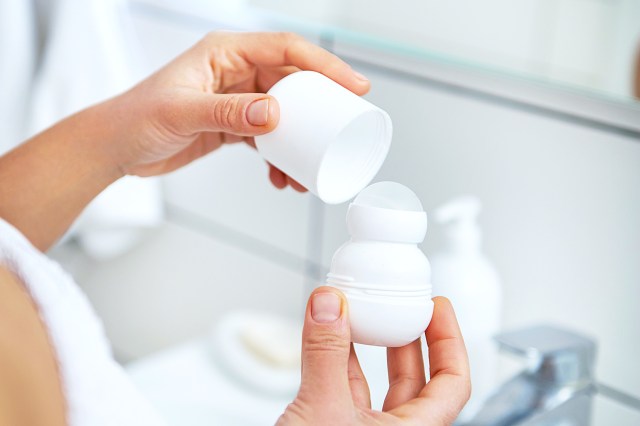
Less Activity Means Better Results
Time isn’t the only thing working against your antiperspirant’s efficacy. Applying it right before you rush out the door to start your day (or in the middle of your commute — we’re not judging) makes it more likely that your body will sweat off the majority of the antiperspirant you applied before it has a chance to absorb into the skin. Applying deodorant to still-damp skin straight from a morning shower can also negatively affect the product’s ability to do its job.
Dr. Mandal says that applying antiperspirant at night when you’re at your least active and your body temperature is at its coolest point allows for a stronger, more efficient application. She also recommends nighttime application for individuals whose underarms are prone to itchiness and irritation from deodorant. By applying it right before bed, you can avoid the worst of any unwanted side effects by simply sleeping through it.
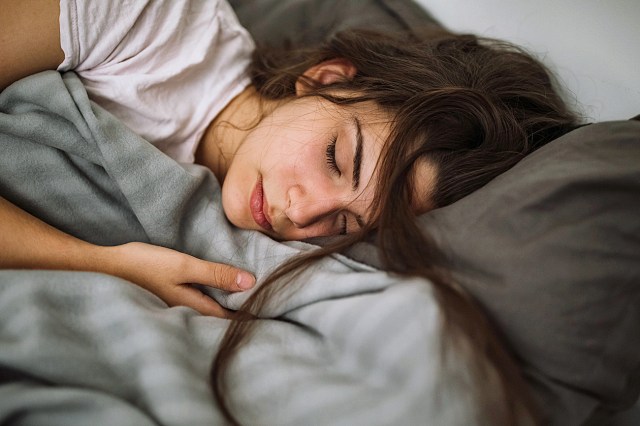
Less Sweat, Less Stress
The mental and emotional benefits of wearing antiperspirant at night are also worth considering. Bespoke Aesthetics Spa owner Kerry Spindler tells us that applying deo before bed can be a valuable form of self-care. “For some people, going to bed feeling fresh can contribute to a sense of comfort and hygiene that promotes better sleep,” she explains. “Applying deodorant at night means you can take your time and ensure you’ve covered the necessary area thoroughly instead of rushing in the morning.”
Donna Chambers, CEO of wellness company SensaCalm, outlines similar benefits. “Applying deodorant at night can help reduce the growth of bacteria that causes unpleasant smells while you sleep, leaving you feeling fresher in the morning,” she says. “This routine can be particularly beneficial for individuals with busy morning schedules, enabling them to start their day feeling refreshed and confident.” After all, who couldn’t stand to benefit from an added dose of “I got this” before you’ve even had your first sip of coffee?
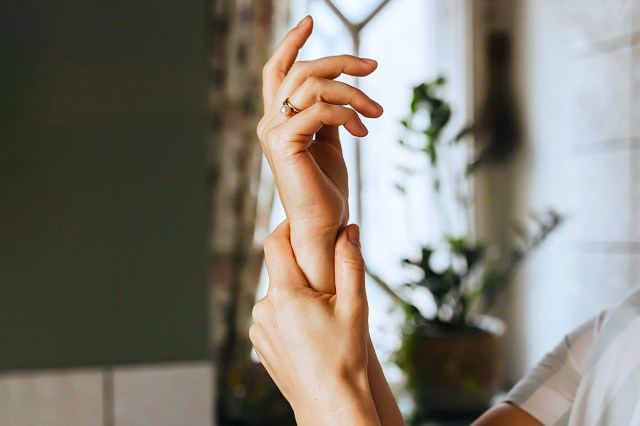
Who Shouldn’t Wear Antiperspirant at Night
Of course, wellness routines are rarely one-size-fits-all, and applying antiperspirant at night is no exception. While Dr. Mandal suggests using deodorant at night is one way around mild — but tolerable — underarm irritation, she offers different advice for those with known allergies or conditions that increase sensitivity, such as eczema or psoriasis. In this case, Dr. Mandal says, nighttime application (or using specific antiperspirants at all) might exacerbate skin irritation.
Even if you don’t have any known allergies, Dr. Mandal suggests taking your skin’s current state into account before applying deodorant. “If you’ve recently shaved your underarms, you may want to wait before applying deodorant or antiperspirant,” she says. “Shaving can create small nicks in the skin, which can become irritated when these products are applied.”
Other people who should avoid applying antiperspirant at night include children, individuals with open wounds or cuts in the area, those who are breastfeeding, and people with certain medical conditions. “Nursing mothers might avoid applying deodorant with solid fragrances or certain chemicals that could irritate the baby’s skin,” Spindler says. “And individuals with kidney disease or other medical conditions may be advised to avoid antiperspirants containing aluminum, as their bodies might not be as effective at eliminating aluminum from the system.”
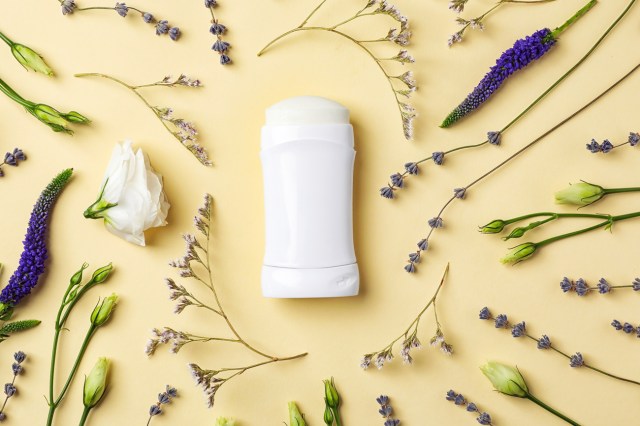
What Type of Antiperspirant Is Best for Nighttime Use?
If you’ve determined that nighttime antiperspirant is right for you, there’s another important question to address: What type should you use? Per Dr. Mandal’s recommendation, clinical-strength formulas are specifically designed to be the best in the business. Additionally, Spindler recommends looking for products that offer 24-hour to 48-hour protection to ensure the product’s efficacy through the following day.
There is also the question of whether or not to go aluminum-free. A small number of studies have suggested a possible correlation between aluminum-containing antiperspirants and breast cancer. However, these studies were largely debunked or are considered unreliable due to their small research pool and unrepeatable results. The American Cancer Society has stated there is no clear link between breast cancer and antiperspirants containing aluminum.
As is typically the case with personal wellness, nighttime antiperspirant application depends on several factors only you can determine, including your skin’s sensitivity, sweat output, and daily schedule. But if you don’t have an allergy or other medical condition that would exclude you, it could be a good idea.
This article is for general informational purposes only.
Affiliate Disclaimer Medical Disclaimer



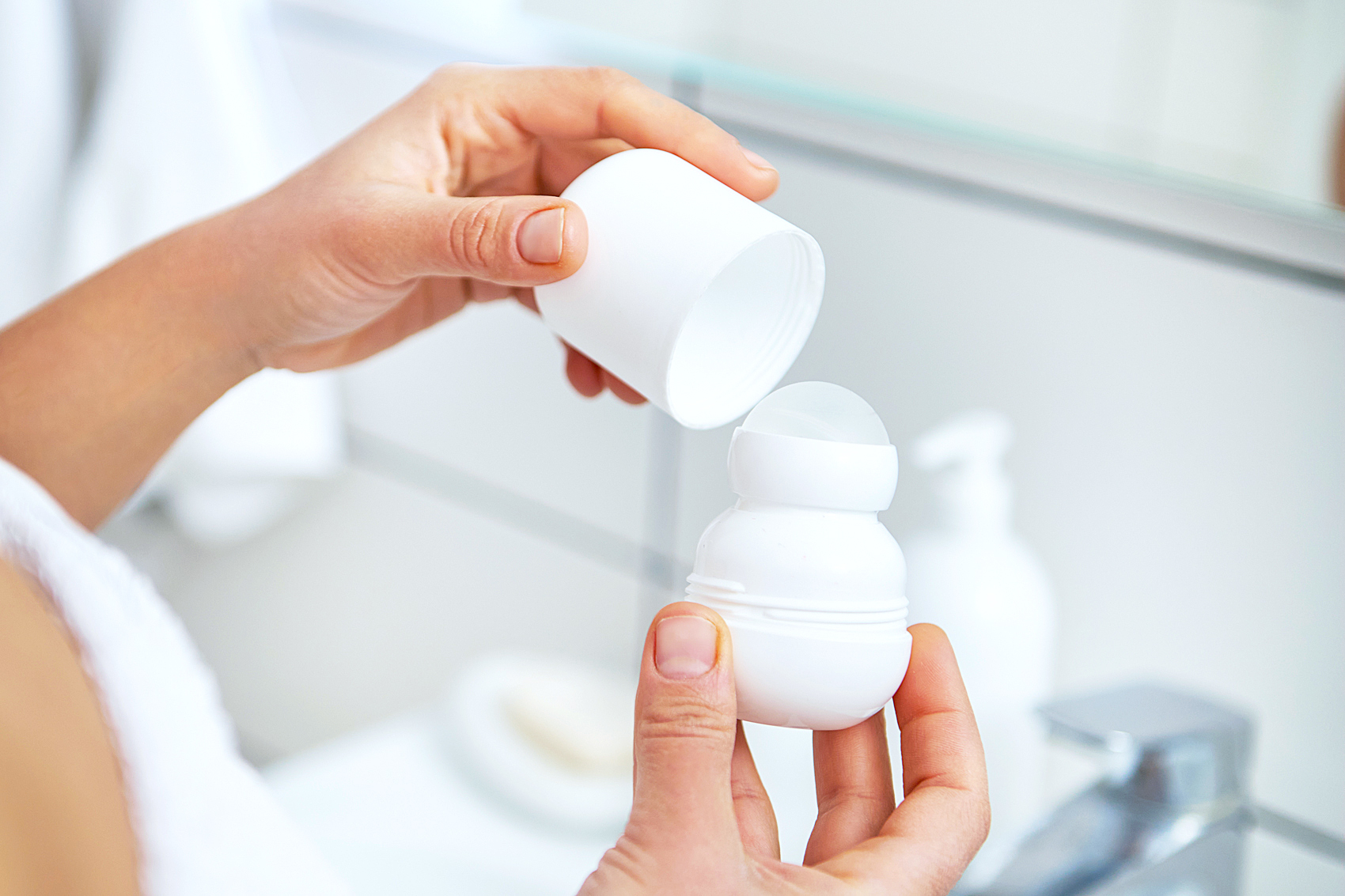







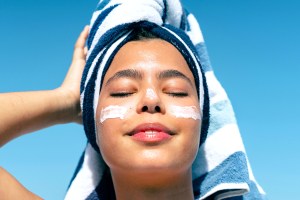




 Unique Beauty is free for all users.
Unique Beauty is free for all users.